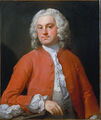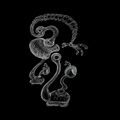Template:Selected anniversaries/February 24: Difference between revisions
No edit summary |
No edit summary |
||
| Line 7: | Line 7: | ||
File:Johannes Weyer.jpg|link=Johann Weyer (nonfiction)|1588: Physician and occultist [[Johann Weyer (nonfiction)|Johann Weyer]] dies. He was among the first to publish against the persecution of witches. | File:Johannes Weyer.jpg|link=Johann Weyer (nonfiction)|1588: Physician and occultist [[Johann Weyer (nonfiction)|Johann Weyer]] dies. He was among the first to publish against the persecution of witches. | ||
||1616: Inquisition qualifiers deny teaching of Heliocentric view . On February 19, 1616, the Inquisition had asked a commission of theologians, known as qualifiers, about the propositions of the heliocentric view of the universe. On February 24 the Qualifiers delivered their unanimous report: the idea that the Sun is stationary is "foolish and absurd in philosophy, and formally heretical since it explicitly contradicts in many places the sense of Holy Scripture..."; while the Earth's movement "receives the same judgement in philosophy and ... in regard to theological truth it is at least erroneous in faith." https://pballew.blogspot.com/2019/02/on-this-day-in-math-february-24.html Pic. | |||
||1709: Jacques de Vaucanson born ... inventor and artist who was responsible for the creation of impressive and innovative automata. He also was the first man to design an automatic loom and built the first all-metal lathe. Pic. | ||1709: Jacques de Vaucanson born ... inventor and artist who was responsible for the creation of impressive and innovative automata. He also was the first man to design an automatic loom and built the first all-metal lathe. Pic. | ||
| Line 13: | Line 15: | ||
||1743: Joseph Banks, 1st Baronet born ... naturalist, botanist and patron of the natural sciences. Pic (stirring). | ||1743: Joseph Banks, 1st Baronet born ... naturalist, botanist and patron of the natural sciences. Pic (stirring). | ||
File:William Hogarth.jpg|link=William Hogarth (nonfiction)|1755: Artist and social critic [[William Hogarth (nonfiction)|William Hogarth]]’s satirical print, "An Election Entertainment," is published. It contains a Tory sign bearing the inscription "Give us our eleven days." This refers to the fact that eleven dates were removed from the calendar when England converted to the Gregorian calendar on September 14, 1752. | |||
||1799: Georg Christoph Lichtenberg dies ... scientist, satirist, and Anglophile. As a scientist, he was the first to hold a professorship explicitly dedicated to experimental physics in Germany. Pic. | ||1799: Georg Christoph Lichtenberg dies ... scientist, satirist, and Anglophile. As a scientist, he was the first to hold a professorship explicitly dedicated to experimental physics in Germany. Pic. | ||
Revision as of 07:50, 24 February 2019
1588: Physician and occultist Johann Weyer dies. He was among the first to publish against the persecution of witches.
1755: Artist and social critic William Hogarth’s satirical print, "An Election Entertainment," is published. It contains a Tory sign bearing the inscription "Give us our eleven days." This refers to the fact that eleven dates were removed from the calendar when England converted to the Gregorian calendar on September 14, 1752.
1810: Chemist, physicist, and philosopher Henry Cavendish dies. He discovered "inflammable air", later named hydrogen.
1842: Osman Hamdi Bey dies. He was an administrator, intellectual, art expert, painter, and archaeologist.
1967: Mathematician and crime-fighter Hugo Steinhaus uses the Banach–Steinhaus theorem to detect and prevent crimes against mathematical constants.
2001: Mathematician, engineer, and information scientist Claude Shannon dies. He is known as "the father of information theory".
1963: The Flying Diner announces twice-daily flights between Saint Paul, Minnesota, and New Minneapolis, Canada .
2016: Signed first edition of Eye Foot purchased for an undisclosed amount by "a well-known APTO Artist-Engineer living in New Minneapolis, Canada."







